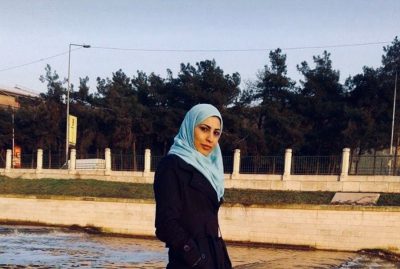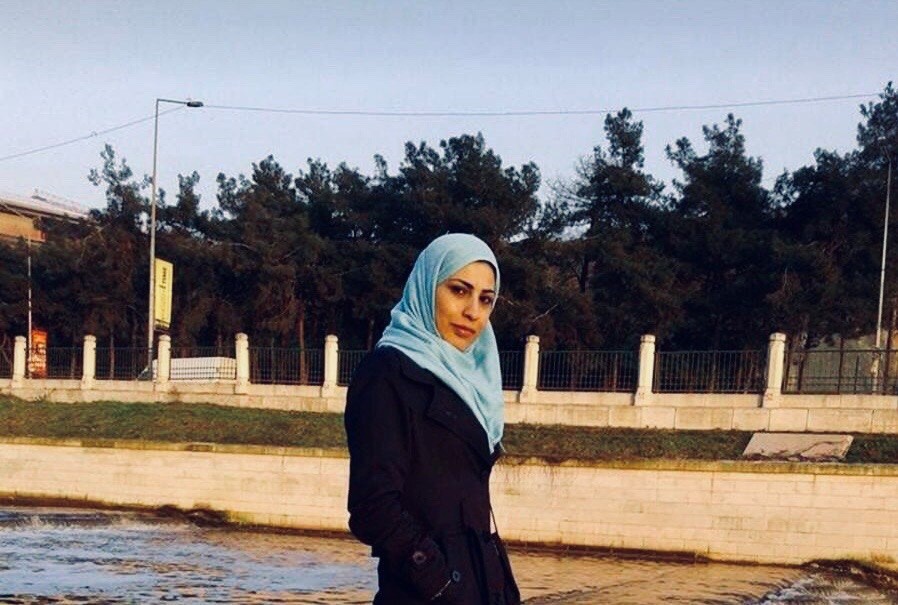
Hanadi Hussein, a survivor of arbitrary detention in Syria, participated in the program “Advancing Justice and Accountability for Detainees and the Disappeared), co-implemented by The Day After. Hanadi documented her story in the book “So I’m not kept in the shadows”: Oral memories of Syrian women survivors of detention, published by TDA. Following her participation in the AJAD program, she joined TDA as a data collector for a survey project on gender-based violence.
“Without documentation, the details of history will be forgotten by time. Documentation requires building files and databases to be available at any time to conduct trials and lawsuits to achieve progress toward justice in the future Syria. For me, releasing a book and working to collect detainees’ data brought value to my life. The detainee in me was allowed to escape, and I became free. I had been living in fear in the past – my fear of society kept me silent and forced me to conceal the memory of what happened to me because I am a woman. I was completely marginalized. I wasn’t receiving any support; I wasn’t invited to any workshops or trainings. I was alone with my two daughters, a refugee in a country that is going through hard circumstances.
After I participated in the training program by The Day After, my fear was gone. They never stopped encouraging me, and I grew stronger and stronger. I became fully aware of my rights, and I learned how to transform myself from a victim to a survivor and to end my isolation and the stigma that was attached to me. I learned how to become a supporter to everyone who went through this experience, men and women, and to communicate the idea that documentation guarantees our right to access justice.
I felt that I was able to start afresh – full of life, productivity, and optimism. In each training, I developed new skills and learned new things. It wasn’t an easy journey for me – it wasn’t easy to move around with two little girls from one place to another, but learning and growing was essential to achieving our goals, and that’s what kept me moving. When I joined the data collection team for the AJAD program, everything became easier, and I overcame many obstacles and problems. I used to be a passive person who wasn’t consulted or involved in the documentation process; now I’m the person doing the documentation. I was able to meet survivors like me, show them the importance of our work, and ensure their voices were heard and that their information was not exploited.
I’ve gained so much valuable knowledge and experience through this work. I also received human rights trainings and psychological trainings to help me deal with survivors sensitively and effectively. I have changed many of my behaviours since then, both in my personal life and in my relationships with survivors of detention.”
Ahmad Al Omari (not his real name) is a survivor of gender-based violence in detention facilities of Assad prisons. He also participated in the program “Advancing Justice for Detainees and the Disappeared,” co-implemented by TDA.
“When I was in detention, suffering overshadowed my life. After I became free, the suffering stayed with me. Everything was black – pessimism dominated my thinking. I had lost all hope of holding the regime accountable for slaughtering and abusing detainees and for waging war against the Syrian people. I was overcome with the spirit of revenge – a blind revenge to restore my rights and rights of all Syrians. I lost my ability to smile or be optimistic, and I became more introverted and less sociable.
Joining the AJAD workshops was a shock to me – a thunderbolt that made me realize I could take revenge by seeking justice, by holding the perpetrators accountable and by strengthening the spirit of democracy in myself through learning about accountability and transparency. This way of thinking did not come naturally to me due to living in a society ruled by despots, far removed from concepts like democracy, rule of law, and the right of expression.
In the workshops, we discussed the importance and purpose of documentation, the international mechanisms that exist for documentation, and how documentation can be used in court to achieve transitional justice. These discussions led me to reflect on myself and my previous life in detention, and the experience gave me hope that I had previously lost. I now believe that we have a moral duty to face the past in order to prevent those crimes from recurring and to hold perpetrators legally accountable in international tribunals.”
